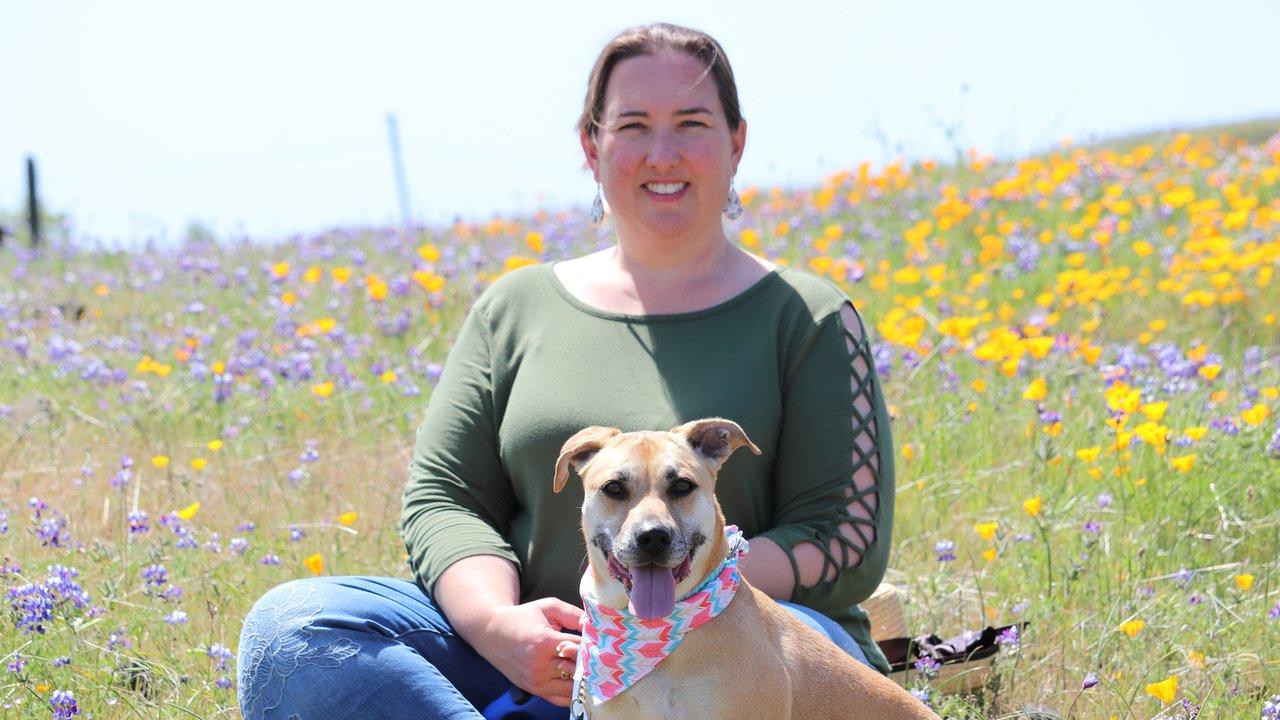
Alumni Spotlight: Carolyn M. Jones '01
Growing up, Carolyn M. Jones ‘01 excelled in math and physics while falling in love with agriculture through organizations like 4H and FFA. She combined her passions at UC Davis—she studied Biological Systems Engineering while becoming involved in the animal science community and living and interning at the campus horse barn managing foals.
Carolyn joined the USDA’s Natural Resource Conservation Service (NRCS) a few months after she graduated and has been there since. She currently works as an agricultural engineer in the agency’s Bay/Delta Team, which covers Alameda, Contra Costa, Marin, Napa, San Joaquin, Solano, Sonoma and Stanislaus counties. She is licensed in the State of California as an Agricultural, Biological and Civil Engineer.
She has been an active member of the UC Davis Department of Biological and Agricultural Engineering Leadership Board since 2012.
Can you tell us about your job?
Farmers, ranchers, dairy producers and other land owners come to NRCS to address natural resource concerns (SWAPA + E&H) and we’ll help them decide how to move forward. My job is to impart engineering to these projects as part of a multidisciplinary team. We’ll take kind of a recon-level look at the site—including inventory and evaluation, land-based surveying and resource assessment—to inform our design. Then the team assists the land owner with permitting, the bid process, construction inspection, and certification of projects.
The fact that I’m an agricultural and biological engineer means that I can apply engineering principles while understanding the agricultural and biological limitations and landscape. I’ve done lots of irrigation projects and have worked on a lot of dairy projects. I’ve also dealt with stream and wetland restoration, erosion control and water management across the region.
What’s your favorite part of your job?
I love building up new engineering and other staff members and seeing them grow into professionals that do really solid, technically-defensible work. The variety of people we get to work with here is amazing. We have fisheries biologists and ecologists, plant biologists and agronomists, cultural resources specialists, engineers, soil scientists and conservationists—and they all come together.
I also love our mission. Dancing along the interface between agriculture and the natural environment is tricky, but helping land owners find solutions that support the agricultural operation while reducing their impact on the environment is really fulfilling. I also get to see some of the most wonderful landscapes. A lot of people don’t get to hike in the wildlands, seeing Mt. Tam, Mt. St. Helena, Mt. Diablo and the Sierra Nevadas from one viewpoint, for work.
How did UC Davis prepare you for your job?
The program and the curriculum allowed me to build a core engineering foundation while having enough electives to still do agriculture classes—I took classes in animal science, biology, farm machinery operation and design and soil science.
UC Davis also taught me how to learn, so I was able to build into the breadth of what we cover within the agency. You don’t have to know everything, but you have to know how to say, ‘I don’t know, but I’ll find out more and get to back to you.’ I think it‘s more professional to admit what you don’t know and go learn it. I grow and learn and listen to other people and that’s what makes me a strong technical practitioner.
Are there any specific courses or professors who were particularly impactful?
The real-worldness of a lot of the professors and lecturers I worked with in the BAE department really grounded me—especially Jim Rumsey and Ken Giles. Jim reminded me of the farmer perspective of the system and Ken really taught me to find the problem you’re actually solving first. Mark Grismer gave me a really solid foundation in hydrology and Ed DePeters gave me some great animal science experience.
How have you stayed connected with UC Davis?
It’s been really neat giving back to the department as a BAE board member and talking to the students, faculty and staff about opportunities and limitations in the BAE field and in California. It’s given me an interface to meeting more students, mentoring some of them, or giving them an opportunity to see who I and NRCS are and what we do—this can include either a one-day ride along through our Earth Team Volunteer program or summer-long Pathways internships.
Over 8 of the last 9 years, I’ve also been an evaluator in the Engineering Design Showcase and it’s really rewarding, with my experience, to go back and ask students about the design process, their teams and how they addressed their clients’ problems.
What’s your advice for current students?
Have an idea, a passion or something that drives you that you want to take on to save the world. Move toward that, but be open to the opportunities open to you along the way. I never thought I’d work with soils as much as I did and it turns out soil is an amazing structure and an amazing living ecosystem. Have something that you want to do, get into it, but if someone wants to show you something, go for it and see what comes of it.
If you want to work with farmers, ranchers, dairy producers, etc., learn about these systems that you’re going to be working with. People who manage agricultural and natural resources are managing very complex systems. Don’t tell people what they’re doing wrong before you understand what they’re doing in the first place. Even those who think they know what’s going on still need to be reminded what the land managers are doing and why.
